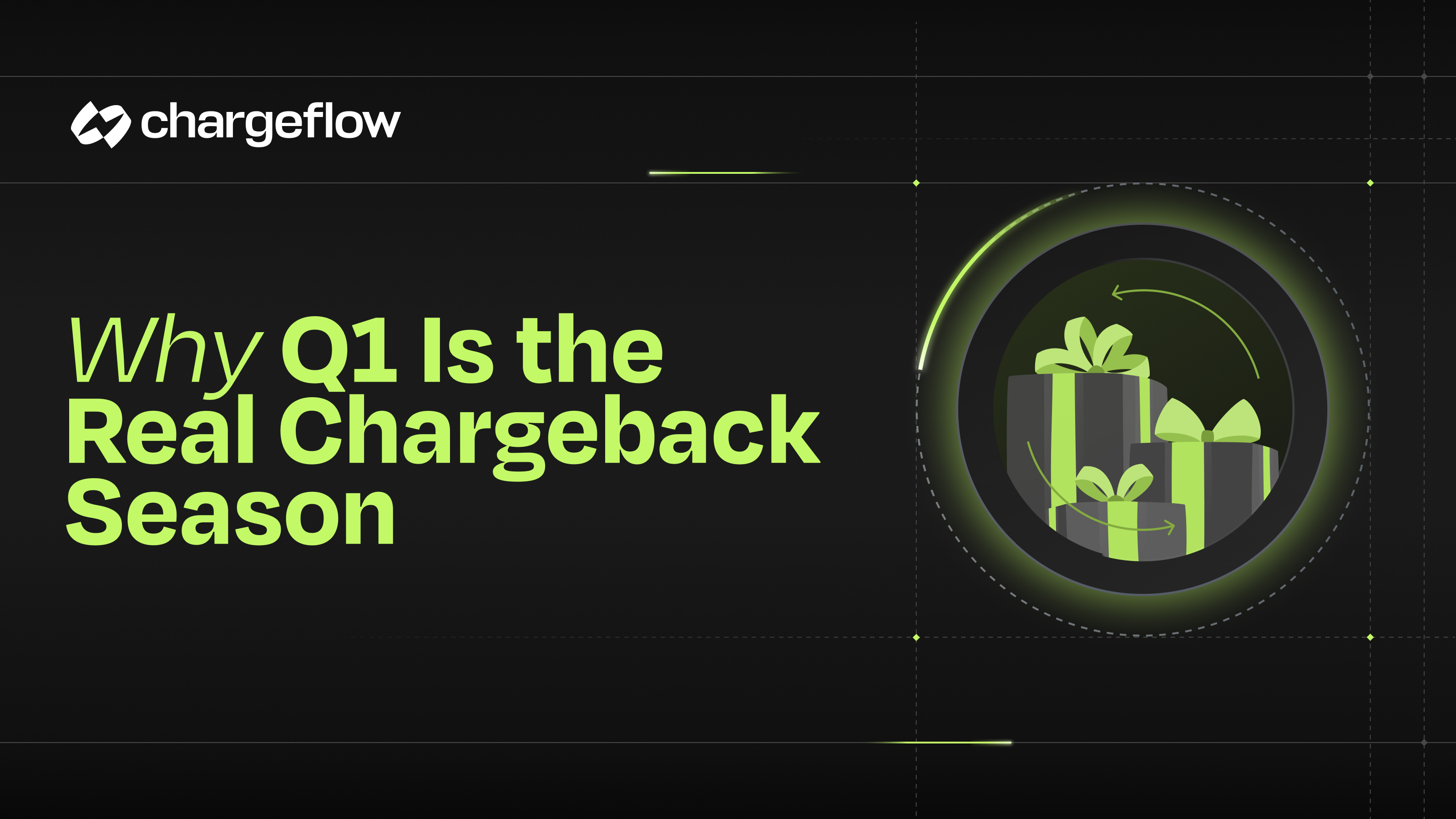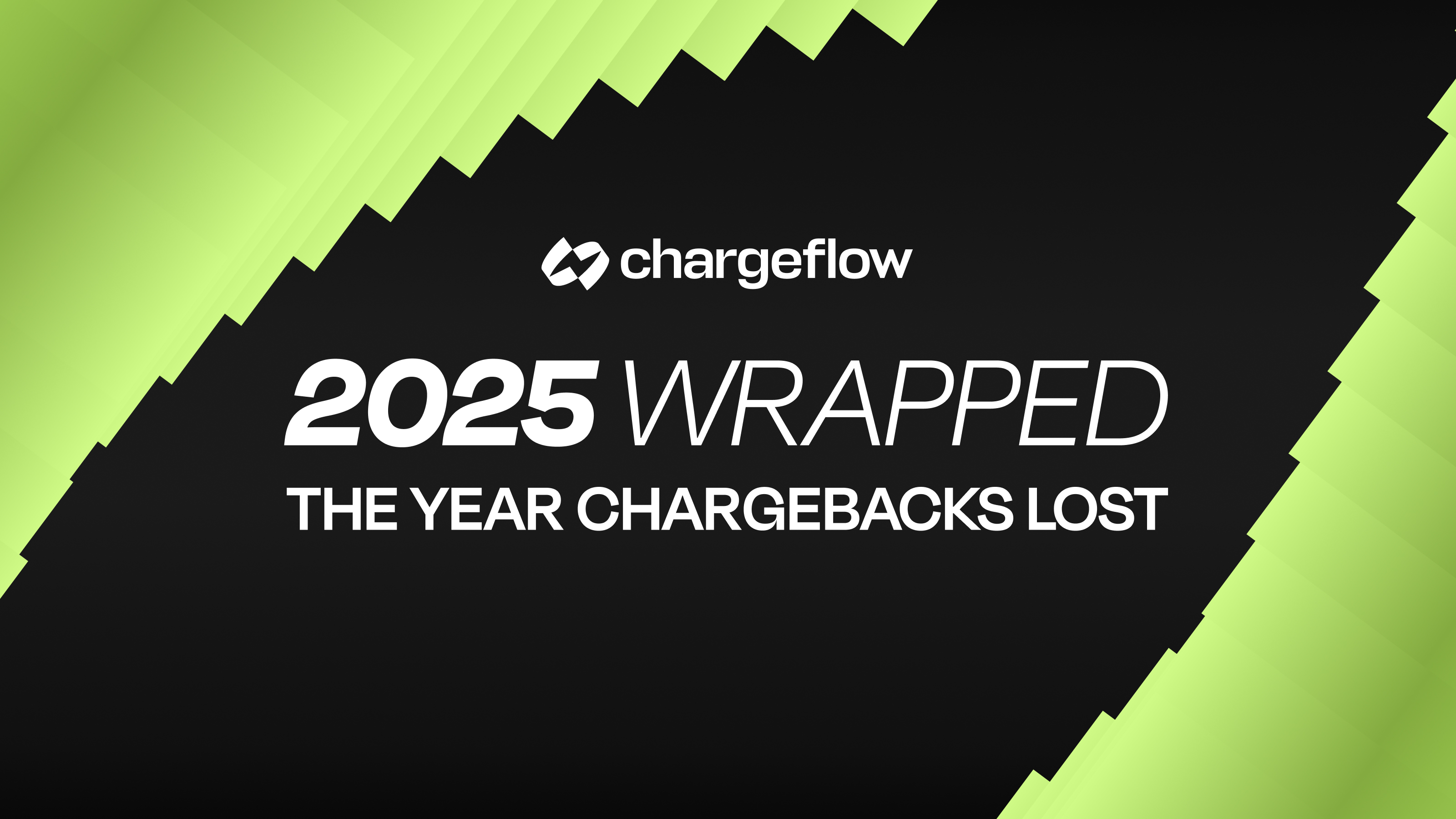American Express Chargeback Reason Codes (2024 Guide for Merchants)

Chargebacks?
No longer your problem.
Recover 4x more chargebacks and prevent up to 90% of incoming ones, powered by AI and a global network of 15,000 merchants.
Merchants rarely win Amex chargebacks. Understanding American Express chargeback reason codes and how to fight or prevent issuances improves your odds.
American Express (Amex) chargeback reason codes and dispute resolution processes are unique. Amex issues cards and operates a card brand. This means anyone filing a chargeback with Amex is a direct customer of the issuing bank, not just a card network member.
For card networks like Visa and Mastercard, chargebacks are usually handled through the card issuer (bank) and the merchant acquirer (payment processor). The card issuer initiates the chargeback process on the cardholder's behalf.
But over at Amex, the system is significantly different. Amex operates a closed-loop network. It serves as both the card issuer and the payment network -- and sometimes, the merchant acquirer. Hence, Amex manages the entire chargeback cycle on its system. So you can understand why merchants' chances of winning American Express chargebacks are abysmally low.
Understanding the Amex chargeback reason codes, and how to fight or prevent issuances, go a long way in improving your odds.
American Express Chargeback Reason Codes Explained
Amex card chargeback reason code is a set of numerics the card network uses to specify the causes of cardholder disputes. They help standardize the dispute process. When an Amex cardholder disputes a merchant transaction, the card network relies on its predetermined chargeback reason codes to decide whether or not to initiate a chargeback, reversing the transaction.
Chargeback reason codes provide more than just insights into transaction declines, cardholder disputes, or payment adjustments. They're also vital for monitoring and analyzing chargeback patterns.
Categorizing disputes with specific codes helps card networks, merchants, and banks gain enhanced visibility into chargeback incidents. Thus, chargeback reason codes are vital for establishing measures that uphold the integrity and reliability of the global payments system.
Another thought worth highlighting is that Amex has a streamlined chargeback notation than Visa or Mastercard. Amex has limited reasons for card disputes, whereas Visa and Mastercard reason codes are more detailed. They cover broader issues, including fraud, authorization errors, processing errors, disputes over goods or services, and more.
Amex Card Chargeback Process Decoded
American Express has a nuanced chargeback resolution process since there is no intermediation from acquiring banks and third-party card issuers. As noted earlier, Amex manages most aspects of the dispute cycle itself.
Therefore, it's reasonable to conclude that this direct dispute reconciliation approach facilitates seamless chargeback handling. Right? Not quite. On the contrary, merchants' chances of winning Amex disputes are notoriously low. American Express prioritizes its relationship with cardholders, or card members, as they call them.
Here's an overview of the Amex chargeback process:
Like conventional chargeback cases, the American Express chargeback process begins with a card member contacting Amex to dispute a transaction on their card statement. An Amex staff will evaluate their claim to determine a suitable cause of action. They will either disregard the case (unlikely), issue a chargeback, or request additional documentation on the dispute transaction.
The time limit for merchant response is 2 to 20 days. Card members have about 120 days to dispute a transaction. The illustration below provides further references:

The rest of this guide will walk you through the various Amex chargeback reason codes and how to prevent them:
Amex Fraud-related Chargeback Reason Codes
Like other card networks, American Express uses specific reason codes to categorize and communicate the rationale behind fraudulent transaction chargebacks to merchants. These reason codes outline the basis for the chargeback and provide insights into the circumstances surrounding the disputed transaction.
For example, they tell you whether the fraud occurred in a card-present or card-not-present environment. They also tell you whether the card used in the transaction was counterfeit or legitimate. Knowing these pertinent details helps you respond to cases appropriately.
Amex has categorized the fraud chargeback reason code into the following distinct groups:
- FR2 Fraud Full Recourse Program: The American Express Fraud Full Recourse Program identified the transaction as unauthorized. Merchants who are on the American Express Fraud Full Recourse program are not eligible to submit Compelling Evidence for claims of fraud.
- FR4 Immediate Chargeback Program: Provides swift dispute resolution in cases where American Express suspects fraudulent transactions, ensuring that affected cardholders are promptly refunded while holding merchants accountable for fraudulent transactions
- FR6 Partial Immediate Chargeback Program: The cardholder raised a dispute, and American Express has enrolled the merchant in their Partial Immediate Chargeback Program.
- F10 Missing Imprint: The cardholder claims they did not authorize a card-not-present transaction and did not receive a copy of the card imprint.
- F14 Missing Signature: The cardholder alleges they did not participate in or authorize a transaction verified by a signature, and the merchant cannot provide a copy of a signed receipt to prove otherwise.
- F24 No Cardmember Authorization: The cardholder acknowledges previous transactions with the merchant but claims they did not authorize the specified transaction under dispute.
- F29 Card Not Present: The merchant billed the cardholder for a mail, telephone, or internet order but the cardholder claims they did not authorize or participate in the transaction.
- F30 EMV Counterfeit: The cardholder denies participating in a transaction where someone used a counterfeit chip card at a POS system, but the POS system did not process the transaction as a chip transaction.
- F31 EMV List / Stolen / Non-received: The cardholder claims someone used their credit card to make an unauthorized transaction.
The preventive measures for Amex fraud chargebacks are symmetrical with how you prevent fraud for other card brands. That includes using Address Verification Service (AVS) for card-not-present transactions and EMV chip reader for card-present transactions. You must also review transaction data for anomalies and close fraud loopholes quickly.
Get the full details on Amex fraud chargeback reason code.
Amex Authorization Chargeback Reason Codes
Amex Authorization chargeback reason codes cover disputes where cardholders claim the merchant processed a transaction without adequate authorization. These codes cover scenarios such as transactions exceeding the approved amount, transactions processed after authorization expired, or transactions where a merchant bypassed designated authorization approval due process.
Amex, like other payment cards, requires merchants to obtain authorization approval as it shows the cardholder has sufficient credit available for the transaction, reducing the risk of declined payments or insufficient funds. Authorization approval signifies the cardholder's consent to the transaction, verifying the transaction's legitimacy and preventing fraudulent activities such as unauthorized card usage.
That said, Amex has crafted the authorization chargeback reason code into the following aspects:
- A01 Charge amount exceeds authorization amount: Authorization approval amount was less than the amount the merchant billed on the card.
- A02 No valid authorization: You did not receive authorization to process the transaction either because the charge was declined or the card had expired.
- A08 Authorization approval expired: You submitted the transaction after the authorization approval had already expired.
To avoid Amex Authorization chargeback, do not process transactions without authorization approval, be sure the card is still in good standing before processing the transaction, and avoid late presentment by sending completed transactions to your payment processor within the timeframe specified in your merchant agreement.
Get the full details on Amex authorization chargeback reason code.
Amex Processing Error Chargeback Reason Codes
American Express Processing Error chargeback reason codes flag discrepancies or transaction processing errors rather than fraudulent activity or disputes initiated by cardholders. These chargebacks can result from various scenarios like duplicate charges, incorrect transaction amounts, or processing delays.
The card networks have payment processing rules that every merchant accepting their cards must follow. Violating any of these rules attracts significant penalties like chargebacks
Amex processing error chargebacks are predominantly merchant-driven. These error codes include:
- P01 Unassigned Card Number: The card details you used to process the transaction do not belong to a valid account or are assigned to a different cardholder.
- P03 Credit Processed as Charge: You processed a transaction, but the cardholder claims it should have been a refund instead.
- P04 Charge Processed as Credit: The cardholder received credit for a transaction that should have been a debit.
- P05 Incorrect Charge Amount: The transaction amount differs from the authorization amount.
- P07 Late Submission: You did not submit the transaction within the stipulated timeline.
- P08 Duplicate Charge: You processed one transaction multiple times.
- P22 Non-Matching Card Number: The card number you submitted does not match the card number used for the original transaction.
- P23 Currency Discrepancy: You processed a transaction with the wrong currency.
As preventive measures, do not process orders without adequate authorization, make your customers aware of currency conversion and applicable fees if purchasing using local currency isn't feasible, review transaction data before processing, educate your workers on payment best practices, and submit transaction receipts to your acquirer promptly, ideally on the same day as the sale.
Get the full details on Amex Processing Error chargeback reason code.
Amex Cardmember Disputes
Cardmember disputes occur when a Cardmember contacts American Express to question a bill on their card. American Express reviews the dispute, assigns a case number, and then displays it in your online Cardmember disputes system. The most common types of Cardmember disputes include unrecognized transactions, billing errors, products or services canceled or not received, and returns.
Once a Cardmember dispute is initiated, the time allowed for your response varies depending on the dispute type, which you can ascertain from your “reply-by” data online. Failure to provide documentation to the cardmember dispute within the specified timeline will result in American Express issuing a chargeback to your account. Below are the various aspects of Amex Cardmember disputes:
- C02 Credit not processed: The cardholder claims a merchant is supposed to issue a refund, but you've not provided American Express with the expected credit or partial credit.
- C04 Merchandise or services returned or refused: The cardholder claims to have made returns, but no refunds were issued for merchandise or services, and goods delivery refusals were not credited.
- C05 Merchandise or services canceled: The cardholder claims you did not refund them after they canceled the goods or services ordered.
- C08 Merchandise or Services Not Received or Only Partially Received: The cardholder claims they did not receive the goods or services in full as promised, or only received them partially.
- C14 Paid by Other Means: The cardholder claims you billed them for a transaction they already paid for using a different method.
- C18 "No Show" or CARDeposit Canceled: The cardholder claims either a lodging reservation was canceled or an expected credit for a CARDeposit charge was not received.
- C28 Canceled Recurring Billing: The cardholder claims they canceled a recurring billing but was still charged, or attempted to cancel the transaction but could not.
- C31 Merchandise or Services Not as Described: The cardholder claims they received goods or services that differed from what you originally presented at the time of purchase.
- C32 Merchandise or Services Damaged or Defective: The cardholder claims they received damaged or defective goods or services.
- M10 Vehicle Rental - Capital Damages: The cardholder claims you erroneously billed them for damages to a rented vehicle.
- M49 Vehicle Rental - Theft or Loss of Use: The cardholder claims you inaccurately charged them for theft or loss of use of a rental vehicle.
To prevent Cardmember disputes, maintain valid documentation proving charges were legitimate and not for theft, loss of use, or unauthorized fees. Ensure any disputed charge has been offset with credit and retain records of cardholders' acknowledgments for damages. Provide accurate product descriptions, accept returns promptly, and issue credits immediately. Avoid selling counterfeit goods, honor cardholder requests to terminate recurring transactions, and maintain transparent cancellation policies.
More so, obtain consent before adjusting transaction amounts and refrain from premature billing, notify cardholders of upcoming charges and clarify cancellation policies at booking, log confirmation, and cancellation numbers per CARDeposit program requirements, review transaction amounts, and void transactions if the cardholder prefers a different payment method.
Get the full details on Amex Card Member Disputes.
Amex Inquiry/Miscellaneous chargeback reason codes
Amex Miscellaneous Chargeback Reason Codes cover disputes related to processing errors, cardholder disputes not categorized elsewhere, and compliance issues with Amex rules or regulations. These include:
- R03 Insufficient Reply: American Express sent an inquiry for more information about the transaction, but you did not provide sufficient documentation.
- R13 No Reply: American Express sent an inquiry for more details about the transaction, but you failed to respond within the designated time limit of 20 days.
- M01 Chargeback Authorization: The merchant authorized American Express to initiate a chargeback for the transaction.
Preventing Amex miscellaneous chargebacks requires you to keep accurate transaction records for timely inquiry responses to American Express whenever they reach out to you. Also, carefully review requests to provide complete documentation to close the case.
Get the full details on Amex Miscellaneous chargeback reason code.
Final Thoughts on Amex Chargeback Reason Codes
Understanding chargeback reason codes for the various card networks is a fundamental prerequisite of chargeback mediation processes. You cannot win disputes if you don’t grasp the various numerical representations of cardholder dispute reasons.
The card brands require merchants to respond to cases according to issuer-assigned chargeback reason codes. Unfortunately, most cardholders do not divulge their true intent for filing chargebacks. And we know that because our research on chargeback trends shows that up to 80% of all chargebacks are due to friendly fraud. That is an intentional misuse of the chargeback system to get freebies and defraud sellers.
So, if you’re basing your chargeback representment on the reason codes from Mastercard, Visa, Amex, and Discover, you're in a tough spot. Also, managing multiple processes with distinct, and often, conflicting rules can be exhausting. You’ll hardly win disputes.
Thankfully, Chargeflow's automated chargeback solution has proven reliable in helping merchants win false chargebacks without lifting a finger. The set-it-and-forget approach and success-based pricing model means you will no longer flush hard-earned revenue down the pipe. Contact our sales team to learn more about it.

Chargebacks?
No longer your problem.
Recover 4x more chargebacks and prevent up to 90% of incoming ones, powered by AI and a global network of 15,000 merchants.
















































.png)








